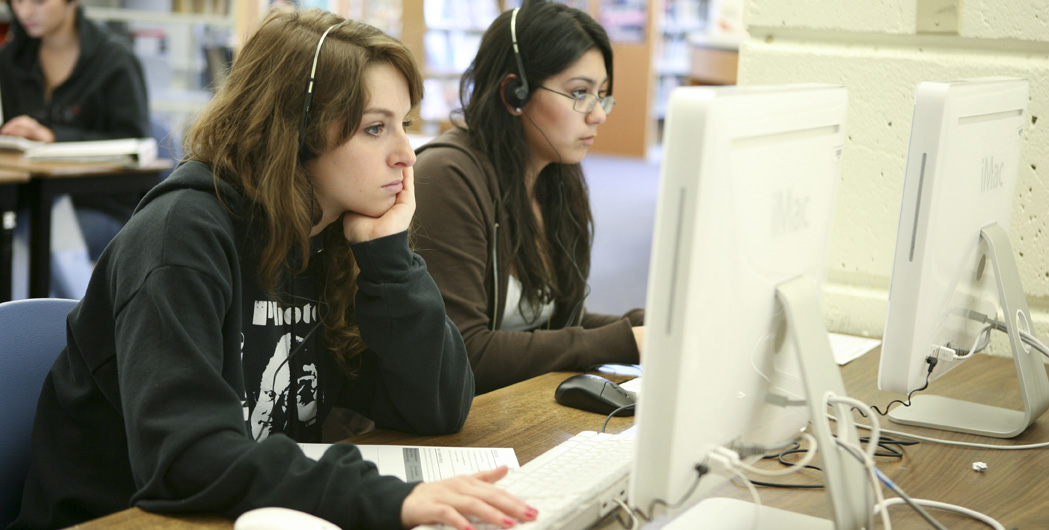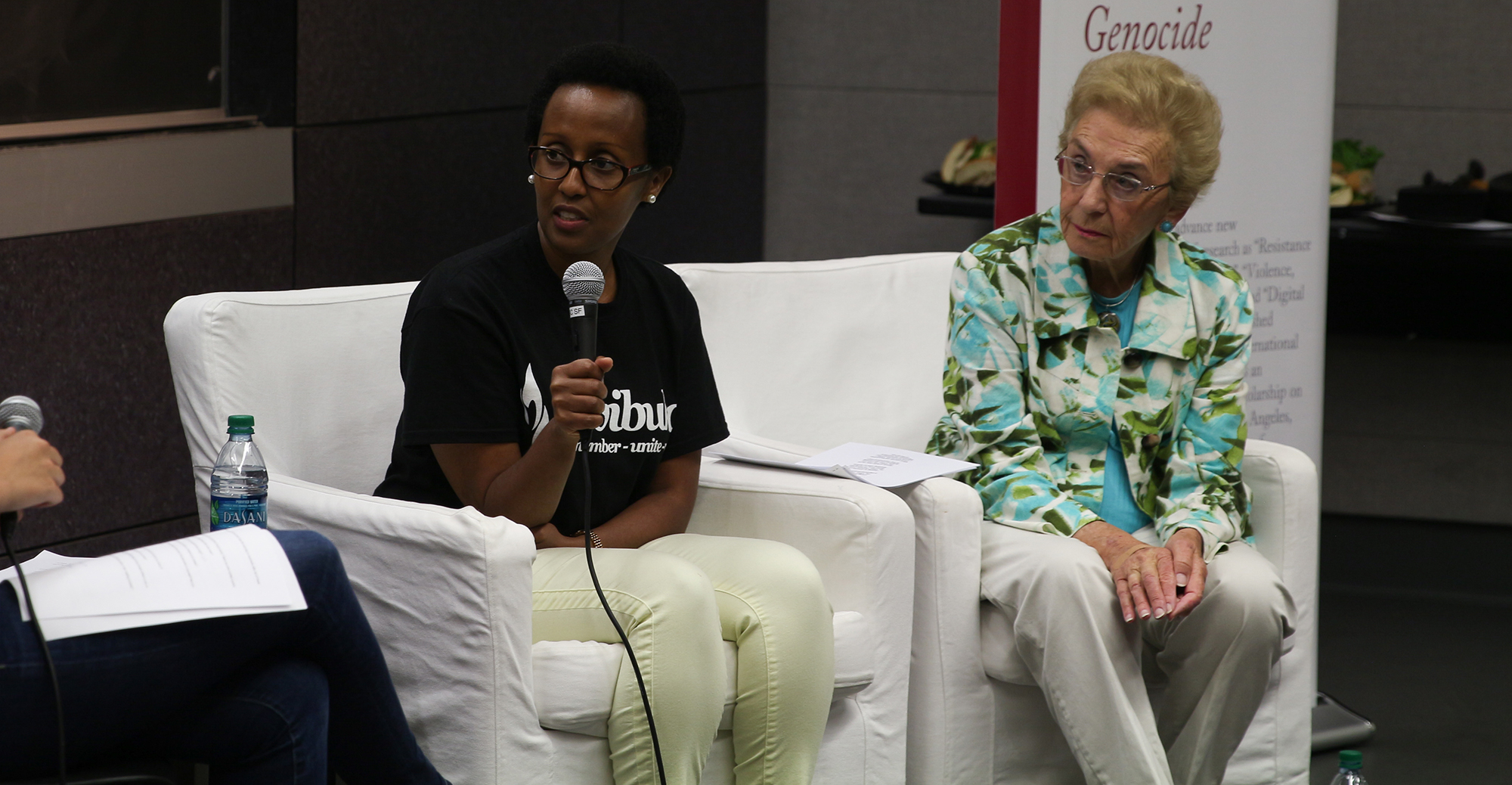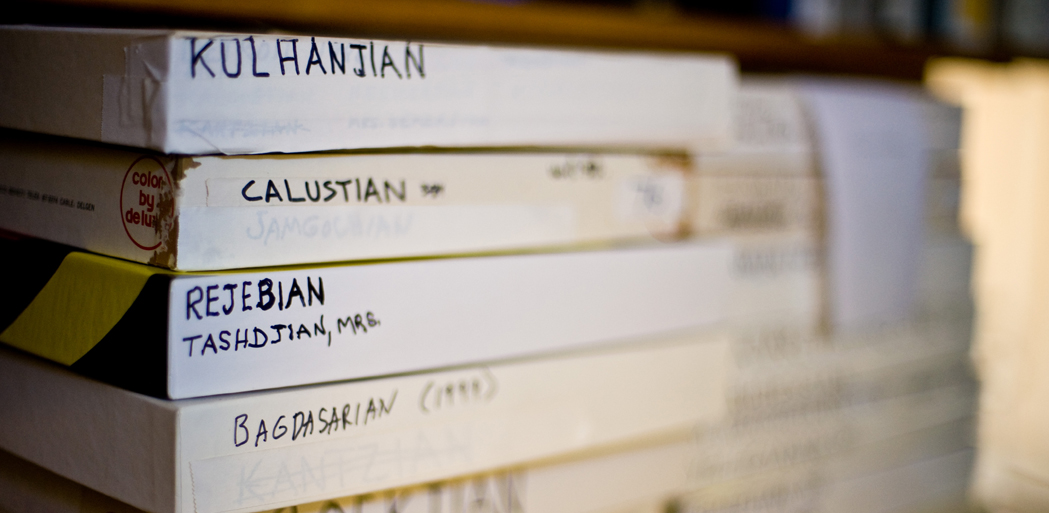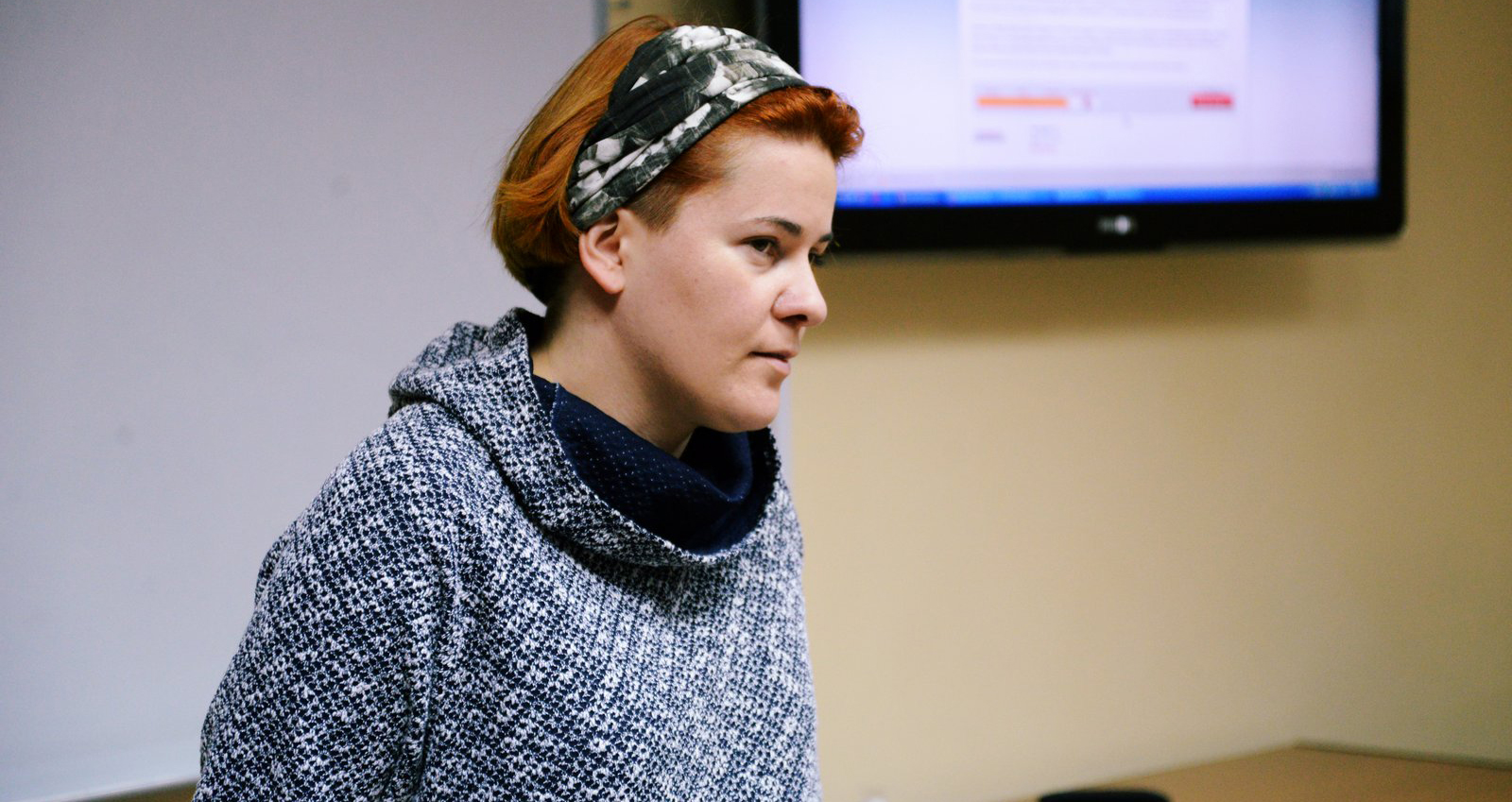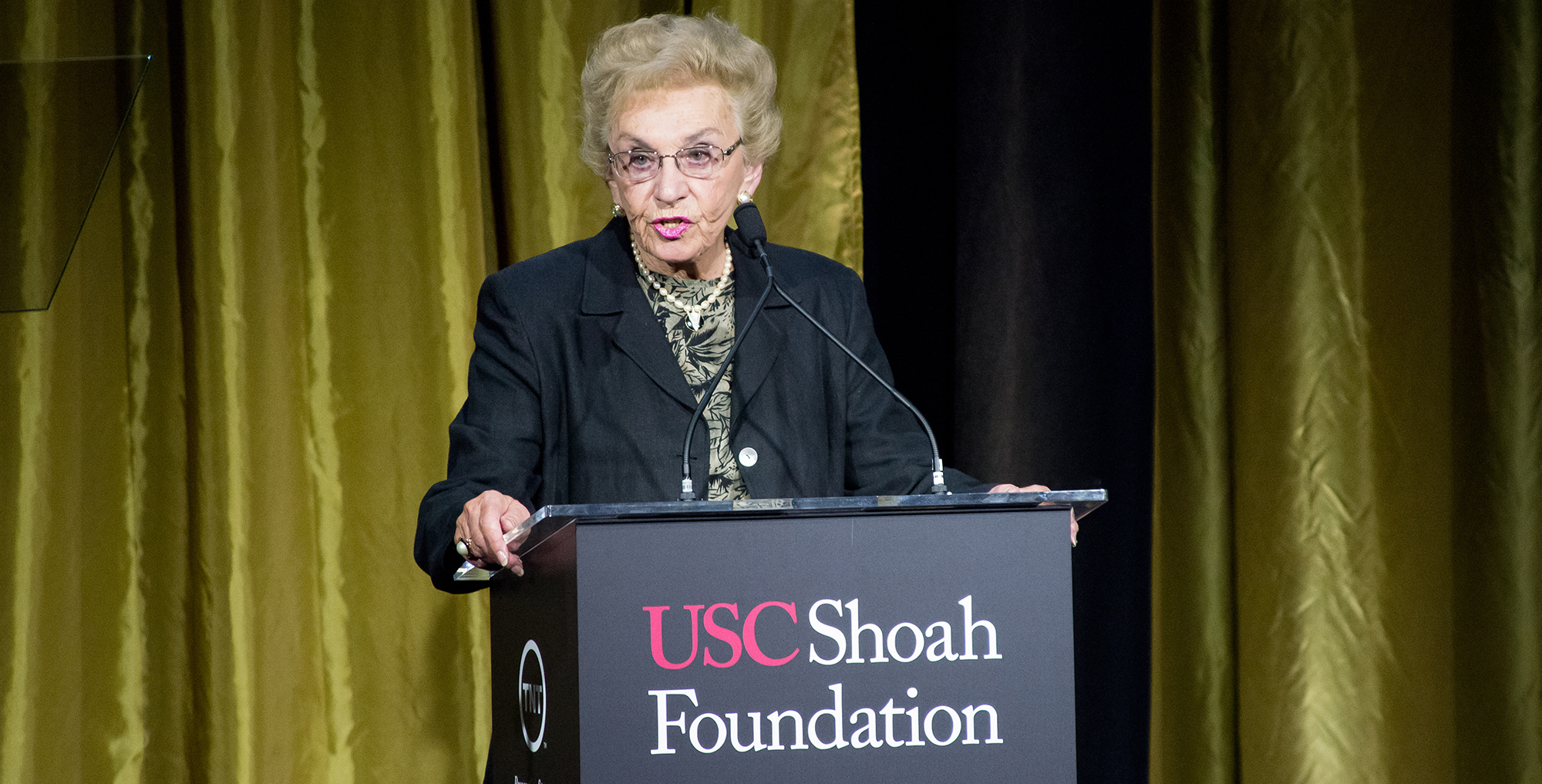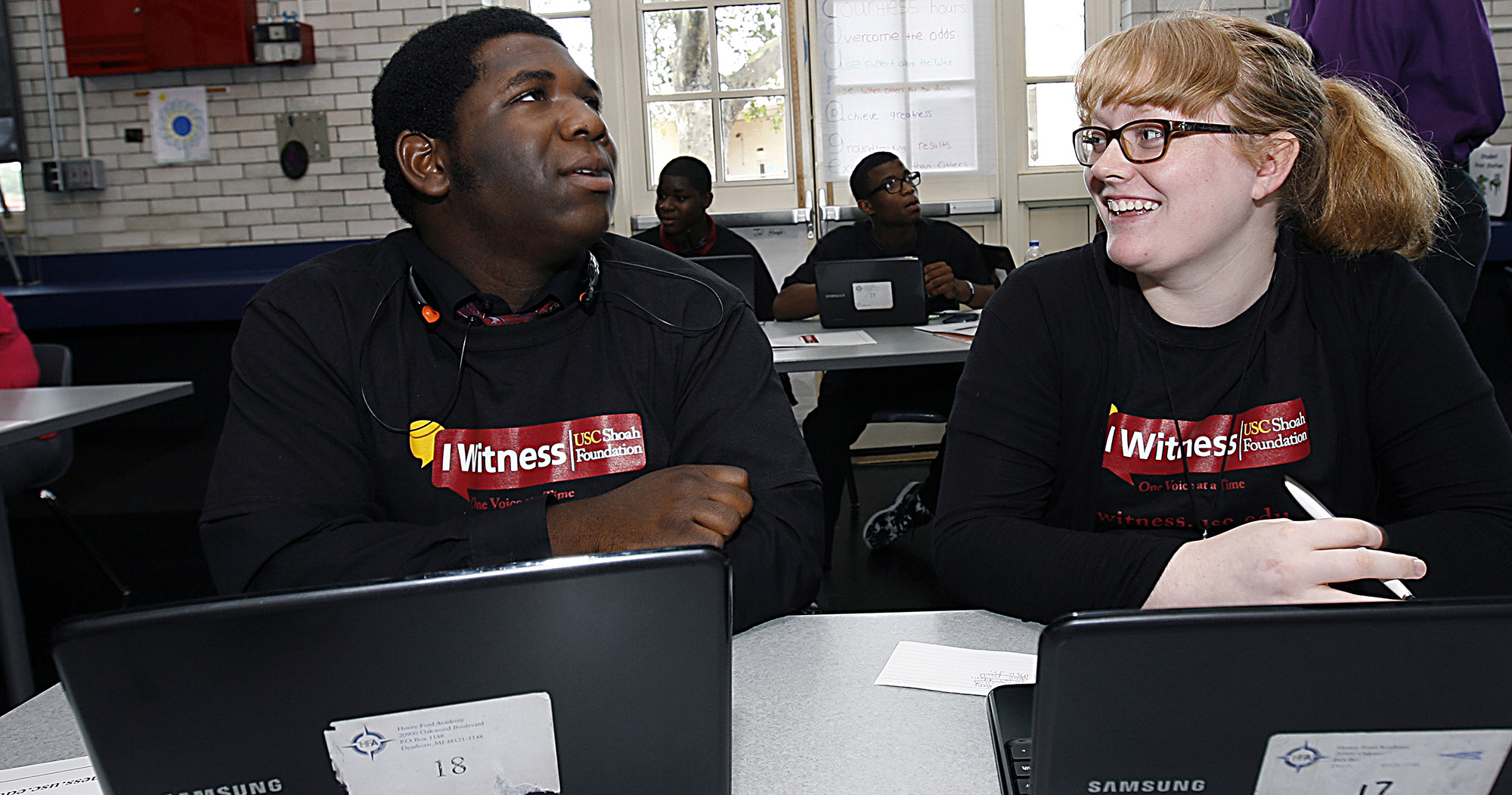News for 2016
Passover, Bergen-Belsen, 1945.
These two thoughts do not belong together: Bergen-Belsen, the epitome of captivity; Passover, the celebration of freedom from slavery.
/ Friday, April 22, 2016
The newest activity in IWitness draws on testimonies of Holocaust survivors to spark students’ reflection on how identity, and the struggle to hide it, can affect people from all walks of life.
/ Thursday, April 21, 2016
Twenty-two and 71 years after surviving genocide, Edith Umugiraneza and Celina Biniaz, respectively, shared poetry they wrote about their experiences at a special event organized by DEFY, USC Shoah Foundation’s student association.
/ Wednesday, April 20, 2016
As the indexer for USC Shoah Foundation’s Armenian Genocide Testimony Collection, I have to listen carefully to hundreds of testimonies assigning keywords to each minute so that these stories will be accessible in the Visual History Archive. Now just in time for the 101st anniversary of the Armenian Genocide we will be integrating an additional 155 indexed testimonies into the Archive. I thought this would be a fitting time to highlight some of the most interesting aspects of the 245 testimonies that will be available in the Visual History Archive Online.
/ Wednesday, April 20, 2016
POLIN Museum of the History of Polish Jews premiered an original short film about the Warsaw Ghetto Uprising featuring testimony from the Visual History Archive.
/ Tuesday, April 19, 2016
USC Shoah Foundation published 185 Armenian Genocide testimonies in the Visual History Archive on Friday, nearly tripling the size of the Institute’s Armenian Genocide collection.
/ Monday, April 18, 2016
USC Shoah Foundation’s consultant in Ukraine Anna Lenchovska shared the resources of USC Shoah Foundation at a roundtable discussion for educators at the Ukraine National Museum’s Memorial to the Victims of Holodomor in Kyiv on April 7.
/ Friday, April 15, 2016
On Tuesday, April 19, Celina Biniaz and Edith Umugiraneza will read poetry they’ve written about their experiences during the Holocaust and the Rwandan Genocide, respectively, in “When Memories Unfold: Poetry After Genocide.”
/ Thursday, April 14, 2016
This month – National Poetry Month in the U.S. – is a great time to explore just how powerful words can be. When it comes to understanding difficult moments in history, poetry and writing can help students process and express their own thoughts about the world. Explore these three ways you can bring poetry into your classroom using tools from Facing History’s partner, USC Shoah Foundation – The Institute for Visual History and Education.
/ Thursday, April 14, 2016
Michigan student Brandon Bartley shares how testimony inspired him when he participated in the IWitness Detroit program last summer.
/ Tuesday, April 12, 2016
